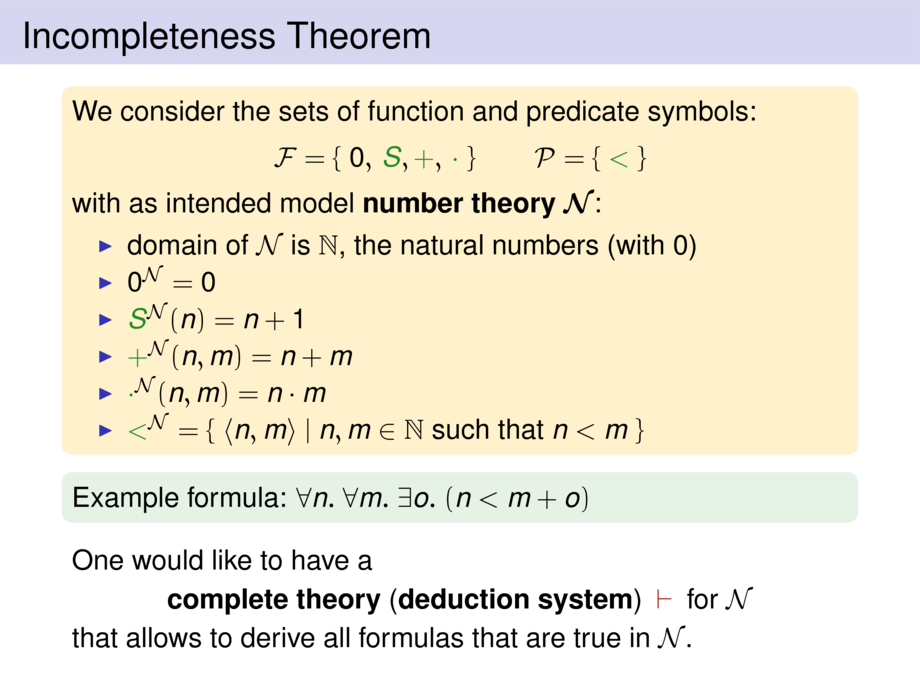
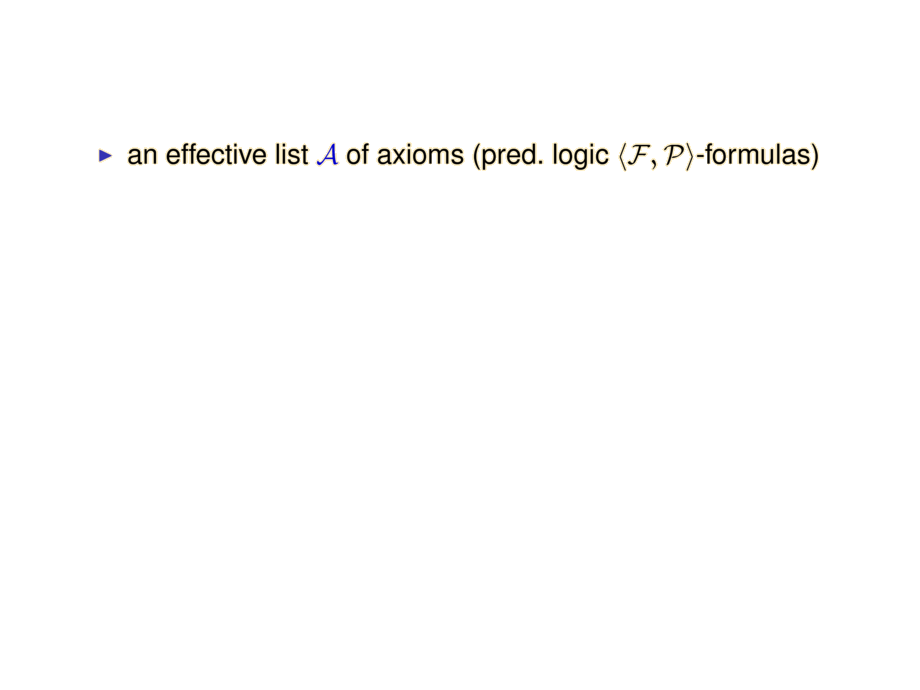
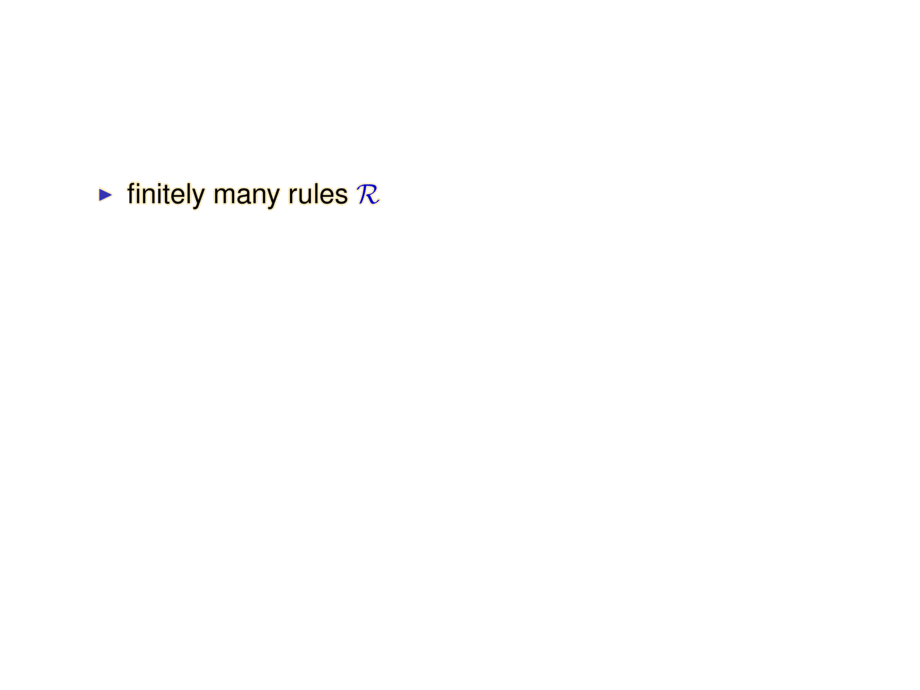
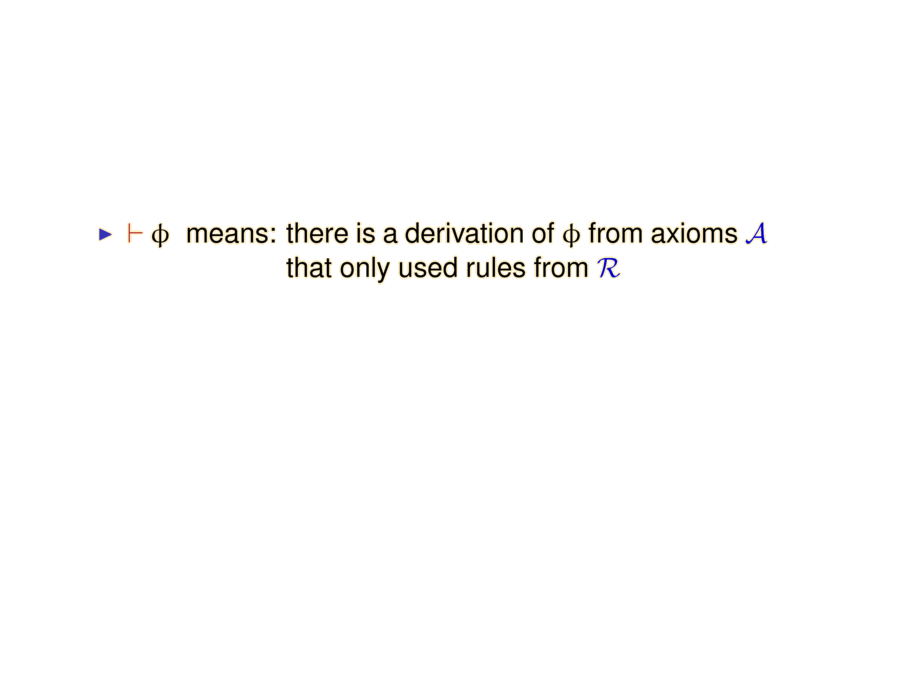
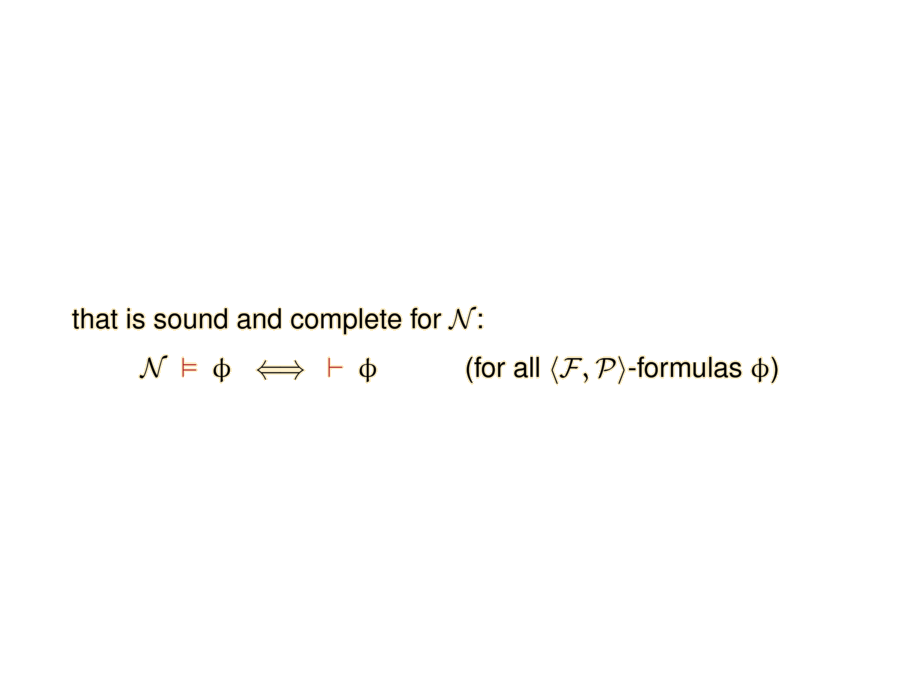
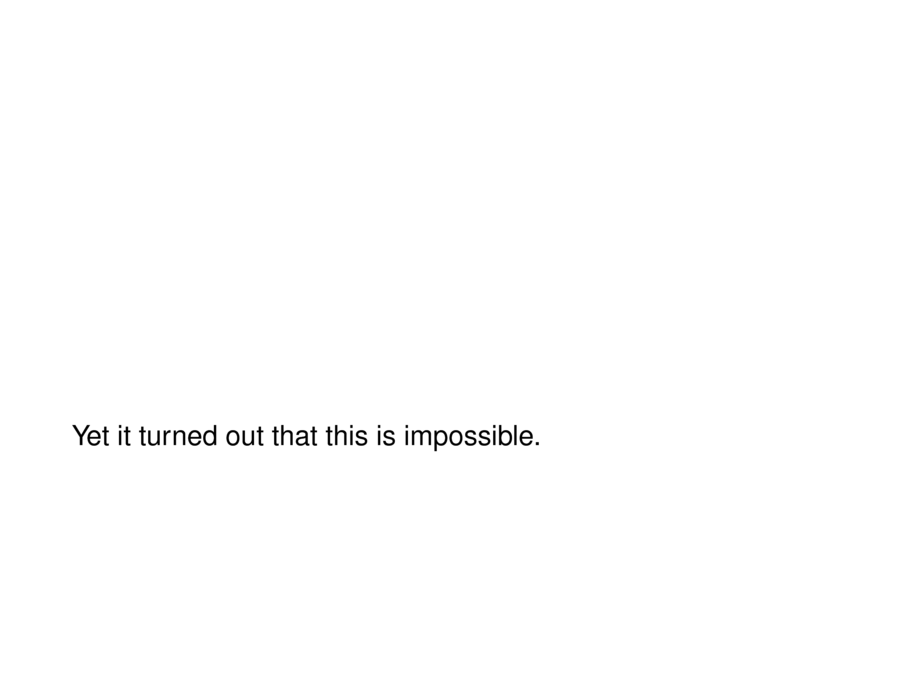





























































































148/162
\begin{frame}{First Incompleteness Theorem}
\begin{goal}{}
Desirable: an \emph{axiomatizable first-order theory} $\derives$ for $\standardN$:
\begin{itemize}
\pause
\item
an effective list \colemph{$\mathcal{A}$} of axioms (pred.\ logic $\pair{\asetfuncs}{\asetpreds}$-formulas)
\pause
\item
finitely many rules \colemph{$\mathcal{R}$}
\pause
\item
$\sderives\:\aform\;$ means:
\parbox[t]{0.62\textwidth}{
there is a derivation of $\aform$ from axioms \colemph{$\mathcal{A}$}\\
that only used rules from \colemph{$\mathcal{R}$}
}
\end{itemize}
\pause\medskip
that is sound and complete for $\standardN$:
\begin{talign}
\standardN \satisfies \aform \;\;\Longleftrightarrow\;\; \derives \aform
\hspace*{6ex}
\text{(for all $\pair{\asetfuncs}{\asetpreds}$-formulas $\aform$)}
\end{talign}
\end{goal}
\pause\medskip
Yet it turned out that this is impossible.
\pause
\begin{block}{First incompleteness theorem (G\"{o}del, 1931)}
Every axiomatizable and sound theory $\derives$ of first-order logic
for number theory with language $\pair{\asetfuncs}{\asetpreds}$
is \alert{incomplete}. That is,
it contains sentences $\aform$ that are \alert{true} in $\standardN$, \alert{but unprovable} in $\sderives\,$:
\begin{talign}
\standardN \satisfies \aform \, , \;\;\text{yet}\;\;\;\; \sderivesnot \:\aform
\end{talign}
\end{block}
\end{frame}

